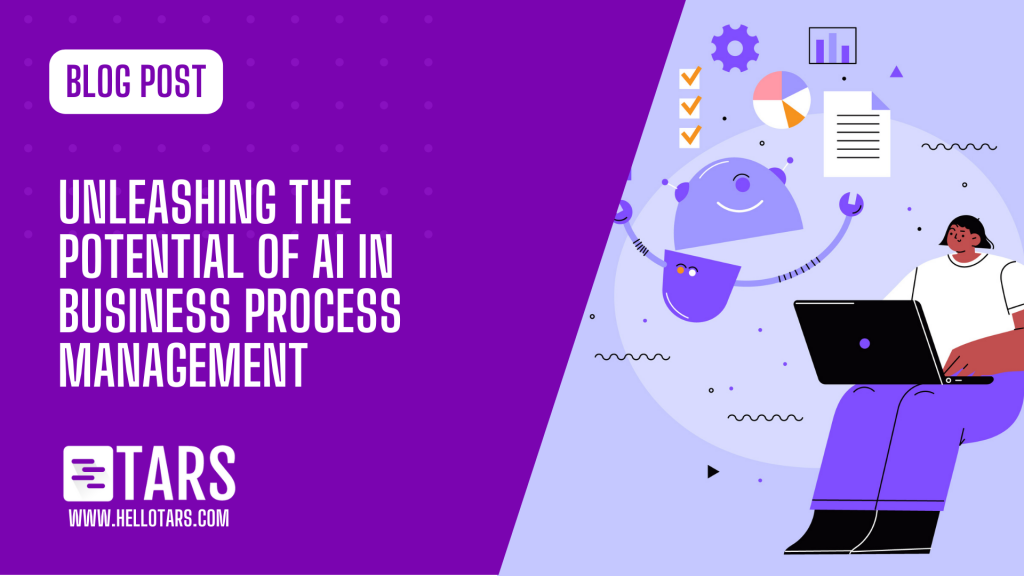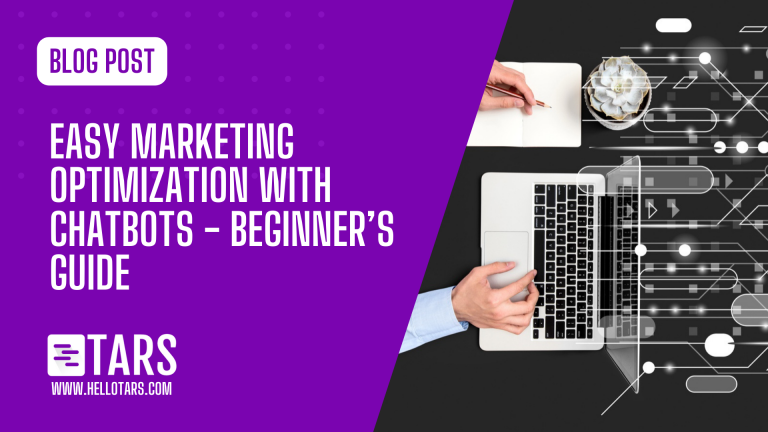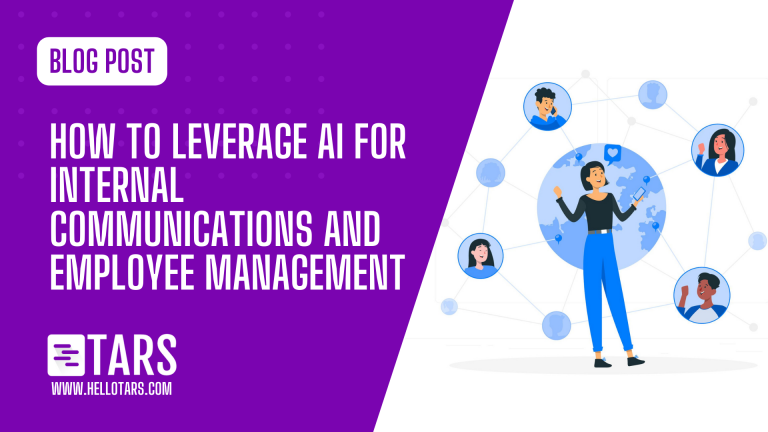Unleashing the Potential of AI in Business Process Management

The potential of AI in Business Process Management (BPM) truly knows no bounds. It has already started to revolutionize the way businesses operate. From improving efficiency and productivity to enhancing decision-making, AI has the potential to transform the entire landscape of business process management (BPM). In this blog, we will explore how AI is transforming BPM and how you can leverage it to unleash the full potential of your business.
What is AI in Business Process Management?
AI is the use of machine learning algorithms and natural language processing to automate and optimize business processes. It involves the use of software and algorithms that can learn and adapt to new data without human intervention. AI can analyze large amounts of data and provide insights that can help businesses make better decisions and improve their processes.
Importance of AI in Business Process Management
AI has become increasingly important in BPM due to its ability to improve efficiency, reduce costs, and enhance decision-making. By automating routine tasks and providing real-time data analysis, AI can help businesses to streamline their processes and make better decisions.
Benefits of AI in Business Process Management

Implementing AI in BPM can bring several benefits to businesses, including:
Improved Efficiency and Productivity
AI can automate repetitive tasks, freeing up time for employees to focus on more complex tasks. This can lead to increased efficiency and productivity, as well as a reduction in errors.
Enhanced Data Analysis and Decision-Making
AI can analyze large amounts of data and provide insights that can help businesses make better decisions. By analyzing data in real-time, businesses can quickly identify trends and patterns and make informed decisions.
Better Customer Experience
AI-powered chatbots can provide instant customer service and support, improving the customer experience and engagement. Chatbots can handle routine queries and tasks, freeing up customer service representatives to handle more complex issues.
Cost Reductions
By automating routine tasks and reducing errors, AI can help businesses to reduce labor costs. AI can also help businesses to optimize their processes and identify areas where costs can be reduced.
Improved Accuracy
AI algorithms can process large amounts of data with greater accuracy than humans, reducing errors and improving the quality of outputs. This can be particularly beneficial in areas such as financial reporting, compliance, and auditing.
Optimization of Business Processes
AI can analyze and optimize business processes to improve efficiency, reduce waste, and enhance the overall performance of the organization. This can lead to significant cost savings and improved productivity.
Predictive Maintenance
AI can analyze data from sensors and other sources to predict when equipment is likely to fail, allowing for preventative maintenance and minimizing downtime. This can be particularly beneficial in industries such as manufacturing, transportation, and healthcare.
Personalization
AI can analyze customer data and provide personalized recommendations and marketing messages, enhancing customer engagement and loyalty. This can lead to increased sales and improved brand reputation.
Best Practices for Implementing AI in Business Process Management
To ensure a successful implementation of AI in BPM, businesses should follow these best practices:
Define the Problem Statement
Before implementing AI, businesses should identify the specific problems they want to solve. This will help them to select the right AI tools and develop an effective strategy.
Develop a Strategy
Businesses should develop a comprehensive strategy for implementing AI, including identifying the necessary resources and personnel. The strategy should be aligned with the business’s goals and objectives.
Select the Right AI Tools
Choosing the right AI tools is crucial to
ensuring the success of AI implementation. Businesses should carefully evaluate different AI tools and select the ones that are best suited to their needs.
Ensure Data Quality
As mentioned earlier, AI requires high-quality data to function effectively. Businesses should ensure that the data they use to train AI models is accurate and complete.
Train and Educate Employees
Employees need to be trained and educated on how to use AI tools effectively. This will help them to understand the benefits of AI and how it can be used to improve their work.
Monitor and Evaluate Performance
Businesses should continuously monitor and evaluate the performance of AI systems. This will help them to identify areas where improvements can be made and ensure that the systems are functioning as intended.
Future of AI in Business Process Management

As AI continues to evolve, its impact on business process management is only expected to grow. Here are some emerging trends that are likely to shape the future of AI in BPM:
Emerging Trends
✅Natural Language Processing (NLP) NLP is an AI technology that allows computers to understand and interpret human language. In the context of BPM, NLP can be used to analyze unstructured data such as customer feedback, social media posts, and emails. This can help businesses to gain insights into customer needs and preferences, improve customer service, and enhance decision-making.
✅Robotic Process Automation (RPA) RPA is a technology that uses software robots to automate repetitive and mundane tasks. By automating these tasks, businesses can free up their employees to focus on more complex and strategic work. RPA can also help to reduce errors and improve efficiency.
✅Predictive Analytics Predictive analytics is an AI technology that uses data, statistical algorithms, and machine learning techniques to identify the likelihood of future outcomes based on historical data. In BPM, predictive analytics can be used to forecast demand, optimize inventory levels, and improve supply chain management.
Potential Impact on the Industry
The potential impact of AI on the BPM industry is significant. Here are some ways in which AI is likely to transform the industry:
✅Increased Efficiency By automating routine tasks and providing real-time insights, AI can help businesses to improve their efficiency and productivity. This can lead to cost savings, faster turnaround times, and increased output.
✅Better Decision-Making AI can provide businesses with access to more data and insights than ever before. This can help decision-makers to make more informed and data-driven decisions, leading to better outcomes and improved competitiveness.
✅Enhanced Customer Experience By analyzing customer data and providing personalized recommendations, AI can help businesses to improve the customer experience. This can lead to increased customer loyalty, higher sales, and improved brand reputation.
Forecast of Future Developments
Looking ahead, here are some developments that are likely to shape the future of AI in BPM:
✅Increased Adoption As AI becomes more widespread and accessible, its adoption in BPM is likely to increase. This will drive innovation and competition, leading to further improvements in AI technology.
✅Greater Integration with Other Technologies AI is likely to be integrated with other technologies such as blockchain, IoT, and cloud computing. This will create new opportunities for businesses to optimize their operations and gain a competitive edge.
✅Continued Development of NLP NLP is likely to continue to evolve, making it even more powerful and useful in BPM. This will enable businesses to extract insights from unstructured data sources and improve their customer service and engagement.
Need the Perfect AI Bot for Your Business? We Can help
Here at TARS we live and breathe conversational AI. Marketing and customer service teams, across multiple industries, use TARS to optimize their business processes, automate their customer service interactions, and redefine their customer experience.
Not sure if we are the right fit? Simply book a free demo. During the demo, our in-house experts will listen to your unique needs and requirements and suggest the perfect solution tailor-made for you and your business.
Ish is the co-founder at Tars. His day-to-day activities primarily involve making sure that the Tars tech team doesn’t burn the office to the ground. In the process, Ish has become the world champion at using a fire extinguisher and intends to participate in the World Fire Extinguisher championship next year.
- What is AI in Business Process Management?
- Importance of AI in Business Process Management
- Benefits of AI in Business Process Management
- Improved Efficiency and Productivity
- Enhanced Data Analysis and Decision-Making
- Better Customer Experience
- Cost Reductions
- Improved Accuracy
- Optimization of Business Processes
- Predictive Maintenance
- Personalization
- Best Practices for Implementing AI in Business Process Management
- Define the Problem Statement
- Develop a Strategy
- Select the Right AI Tools
- Ensure Data Quality
- Train and Educate Employees
- Monitor and Evaluate Performance
- Future of AI in Business Process Management
- Emerging Trends
- Potential Impact on the Industry
- Forecast of Future Developments
- Need the Perfect AI Bot for Your Business? We Can help


Build innovative AI Agents that deliver results
Get started for freeRecommended Reading: Check Out Our Favorite Blog Posts!

Easy Marketing Optimization with Chatbots – Beginner’s Guide

Using a Chatbot for Commercial Real Estate – Beginner’s Guide

AI for Internal Communications and Employee Management

Our journey in a few numbers
With Tars you can build Conversational AI Agents that truly understand your needs and create intelligent conversations.
years in the conversational AI space
global brands have worked with us
customer conversations automated
countries with deployed AI Agents



